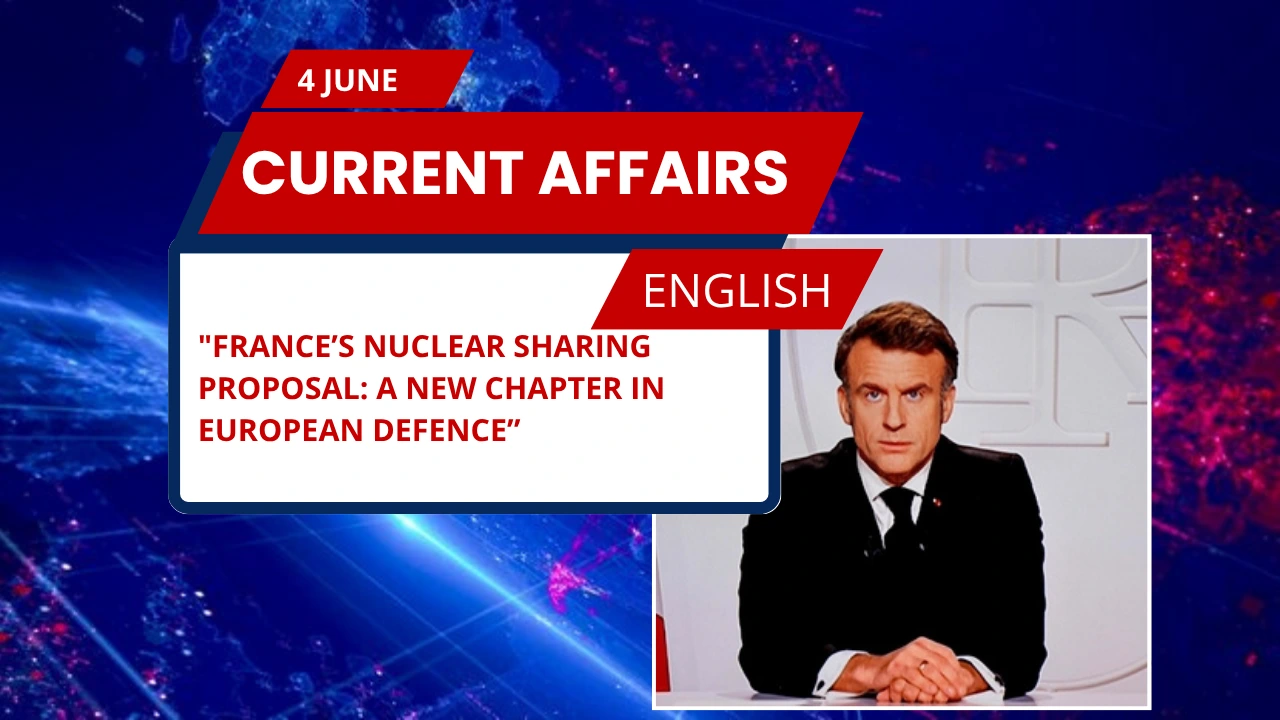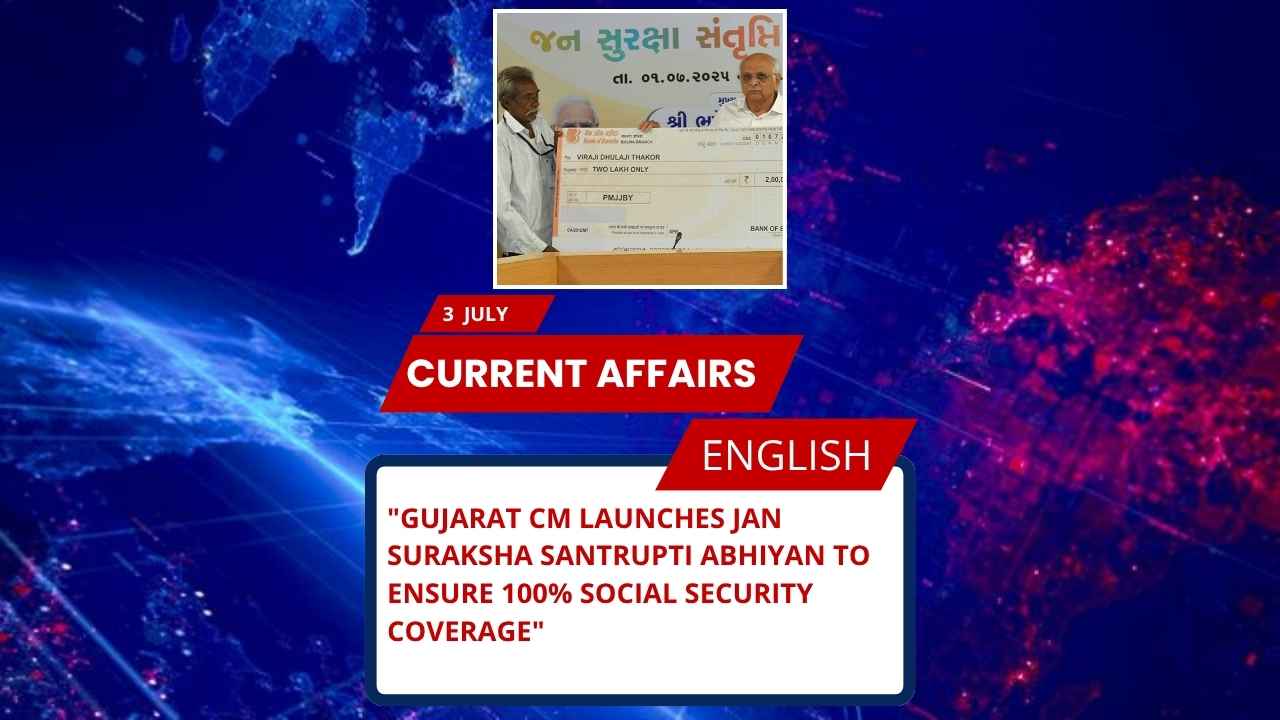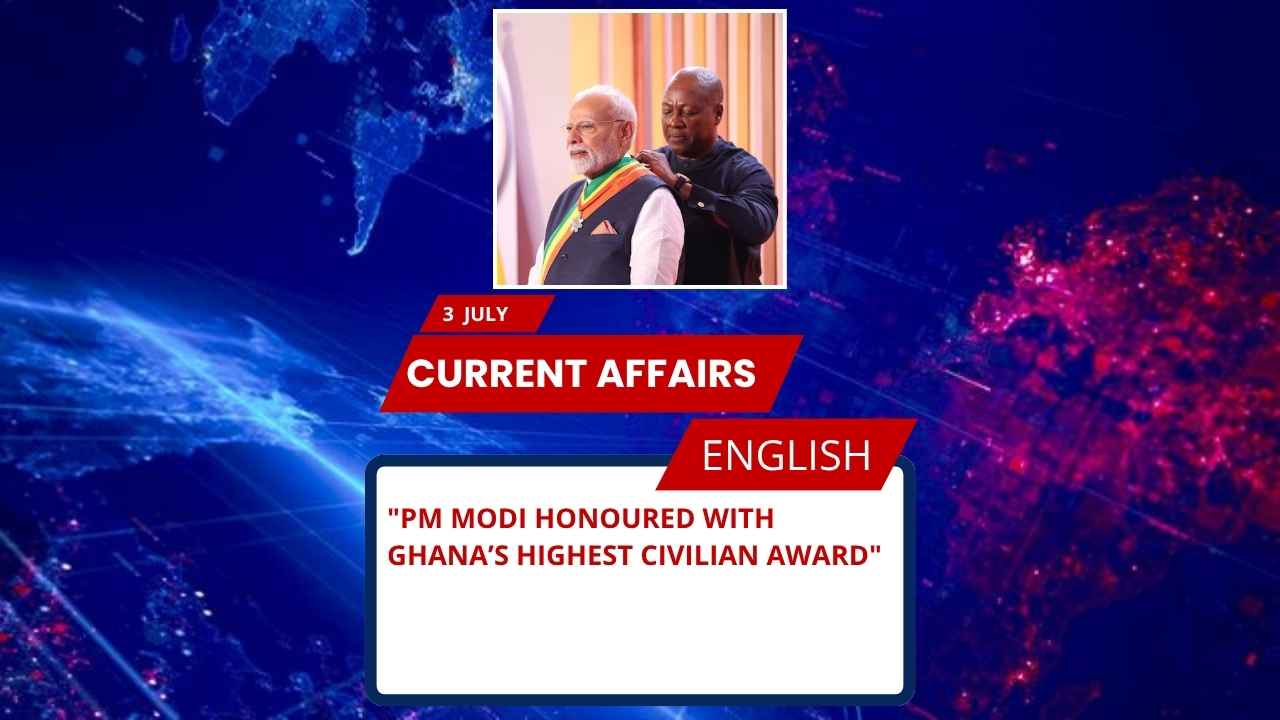
Key Points for SSC and Other Government Exams
- On May 14, 2025, French President Emmanuel Macron proposed stationing French nuclear weapons in other European countries.
- This move is linked to “European strategic autonomy” and aims to reduce reliance on the U.S. and NATO.
- France has around 290 nuclear warheads, deployed via submarines and Rafale jets.
- Inspired by NATO’s nuclear sharing model (used by the USA).
- Raises legal concerns under the Nuclear Non-Proliferation Treaty (NPT).
- Could strengthen deterrence against Russia, but also increase tensions.
- Reflects a strategic shift from France’s traditional independent nuclear policy.
Complete Blog: France’s Nuclear Sharing Proposal and European Defence
Introduction
On May 14, 2025, French President Emmanuel Macron signaled a historic shift in France’s nuclear posture by expressing willingness to deploy French nuclear weapons in other European nations. This statement comes amid rising geopolitical tensions, especially from the Russia-Ukraine conflict.
What is Nuclear Sharing?
Nuclear sharing is a defence arrangement where a nuclear-armed country places nuclear weapons in non-nuclear allied nations. This concept is not new—the United States has followed it for decades under NATO, stationing B61 tactical nuclear bombs in Germany, Belgium, Netherlands, Italy, and Turkey. The goal is to promote alliance unity and collective deterrence.
France’s Nuclear Capability
France is one of the recognized nuclear powers with approximately 290 nuclear warheads. These are delivered through:
- Submarine-Launched Ballistic Missiles (SLBMs)
- Air-Launched Cruise Missiles via Rafale fighter jets
If France begins deploying its arsenal abroad, it might need to expand its warhead stockpile to maintain credible deterrence.
Strategic Implications
- Supporters argue it would boost Europe’s defence independence and strengthen deterrence against Russia.
- Critics warn it might provoke Russia, which already sees NATO expansion as a direct threat.
- This approach fits into France’s idea of “European Strategic Autonomy“—the belief that Europe should defend itself without depending heavily on the U.S..
Legal Angle: What Does the Law Say?
The Nuclear Non-Proliferation Treaty (NPT) of 1968 bans the transfer of nuclear weapons by nuclear states. NATO argues its sharing policy is legal, as the U.S. retains full control over its nukes. However, this logic is contested. France’s proposal could invite international scrutiny and legal debate.
A Shift in French Nuclear Policy
Historically, France has been fiercely independent in its nuclear doctrine. It kept its nuclear forces outside NATO command even during the Cold War. Macron’s move indicates a dramatic evolution in France’s security outlook—possibly the biggest since Charles de Gaulle established the independent “Force de Frappe” in the 1960s.
Organisation & Country Facts (For MCQ Relevance)
France
- Capital: Paris
- President (2025): Emmanuel Macron
- Nuclear Warheads: ~290
- Nuclear Delivery Systems: SLBMs, Rafale jets
- Military Doctrine: Historically independent, now shifting toward collective European deterrence
NATO (North Atlantic Treaty Organization)
- Established: 1949
- Headquarters: Brussels, Belgium
- Members: 32 (as of 2025)
- Key Function: Collective defence (Article 5)
- Nuclear Sharing Countries: Belgium, Germany, Italy, Netherlands, Turkey (U.S. B61 bombs)
Russia
- President (2025): Vladimir Putin
- View on NATO Expansion: Hostile, considers it a threat
- Nuclear Arsenal: Largest in the world (~5,800 warheads)
NPT (Nuclear Non-Proliferation Treaty)
- Signed: 1968
- Purpose: Prevent spread of nuclear weapons
- Recognized Nuclear Weapon States: USA, UK, Russia, China, France
Possible Exam Questions (MCQs)
Q1. When did President Emmanuel Macron propose France’s willingness to share its nuclear weapons with European allies?
A. April 20, 2024
B. May 14, 2025
C. June 1, 2025
D. March 5, 2024
Correct Answer: B. May 14, 2025
Q2. Which of the following countries does not currently host U.S. nuclear weapons under NATO’s nuclear sharing?
A. Germany
B. Turkey
C. France
D. Italy
Correct Answer: C. France
Q3. What is the approximate number of nuclear warheads France currently possesses?
A. 100
B. 200
C. 290
D. 400
Correct Answer: C. 290
Q4. What is the legal international treaty that regulates nuclear weapon transfer?
A. START Treaty
B. CTBT
C. NPT
D. INF Treaty
Correct Answer: C. NPT
Q5. What term describes the EU’s aim to act independently in security and defence matters?
A. Military Revolution
B. Strategic Autonomy
C. Nuclear Doctrine
D. Mutual Defence Pact
Correct Answer: B. Strategic Autonomy
Q6. Which country has the world’s largest nuclear arsenal as of 2025?
A. USA
B. China
C. France
D. Russia
Correct Answer: D. Russia






